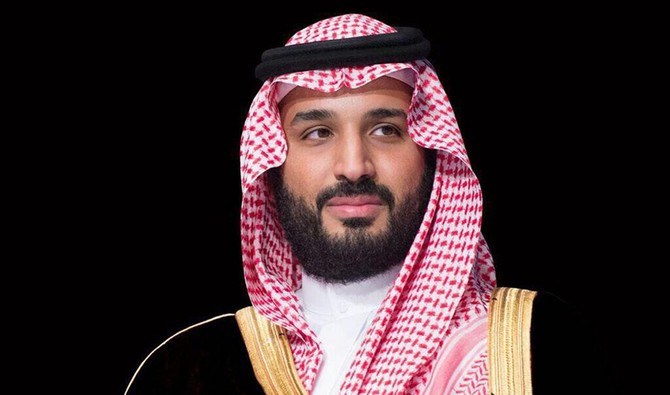RIYADH: Saudi Arabia’s Crown Prince Mohammed bin Salman on Tuesday launched his country’s National Transport and Logistics Strategy.
The comprehensive program aims to position the Kingdom as a global logistics hub connecting three continents, and improve all transport services in support of Saudi Vision 2030.
A host of game-changing projects are planned to help achieve the strategy’s economic and social goals, along with improved governance to enhance the work of the organizations involved. It also reflects the renaming of the Ministry of Transport as the Ministry of Transport and Logistics Services.
“This strategy will strengthen human and technical capabilities in the transport and logistics sector in the Kingdom,” the crown price said.
“It will enhance the connection with the global economy and enable our country to invest its geographical position, in the middle of three continents, in diversifying our economy by establishing an advanced logistics-services industry, building high-quality systems of services, and applying competitive business models to enhance productivity and sustainability in the logistics sector.
“Transport and logistics are a major focus of the programs of the Kingdom’s Vision 2030 and a vital enabling factor for economic sectors toward sustainable development.”
He added that areas covered by the strategy include the development of infrastructure, the launch of a number of platforms and logistics zones in the Kingdom, the implementation of advanced operating models and systems, and the building and enhancement of effective partnerships between the government and the private sector.
It has four main goals: to transform Saudi Arabia into a logistics hub; boost the quality of life across the country; enhance fiscal sustainability; and improve the performance of public entities. Crown Prince Mohammed said that the strategy also aims to move Saudi Arabia into fifth place globally in terms of number of transit passengers, increase the number of international destinations served by the country to more than 250, and launch a new national air carrier. The successful implementation of these projects will help other sectors, such as Hajj, Umrah and tourism, to achieve their own goals for improvement and growth.
The new strategy also seeks to improve the capabilities of the air cargo sector by doubling its capacity to more than 4.5 million tons.
Regarding the plans for maritime transport, the crown prince said: “The strategy enables us to reach a capacity of more than 40 million containers annually.” He added that it includes associated investments in developing port infrastructure and enhancing integration with the logistics sector, as well as expanding connectivity with international shipping lines and improving integration with rail and road networks, which will contribute “to improving the efficiency of the transport ecosystem and its economics.”
He said that the Kingdom’s railways currently provide passenger and freight services through a network of 5,330 kilometers of track, 450km of which is the Haramain high-speed railway between Mecca and Madinah, the largest high-speed transport project in the region.
The new strategy will increase the total length of the rail network to an estimated 8,080km. It includes a “land bridge” project that will span more than 1,300km and connect the Kingdom’s ports on the coast of the Arabian Gulf with those on the Red Sea coast. It will have the capacity to transport more than 3 million passengers and 50 million tons of freight annually, opening up new opportunities in the areas it passes through.
It is hoped that it will improve the Kingdom’s logistics performance index so that it ranks among the top 10 countries in the world. By providing an open market for operators and investors in railways, it aims to encourage interconnection between Arab Gulf states and position the Kingdom as an influential force in the regional and international transport economies.
The crown prince stressed that the strategy builds on important existing pillars, such as the Kingdom’s road network, which provides a high level of connectivity that compares well with global benchmarks.
The new strategy aims to position the Kingdom among the most advanced countries in terms of road quality and safety. To achieve this, it includes initiatives designed to reduce the number of road-traffic accidents, implement the best global practices, achieve efficient connectivity, and develop public transport in Saudi cities.
In addition there are environmental goals, including enhanced sustainability, a reduction in fuel consumption by 25 percent, and the provision of smart solutions to transport challenges through the adoption of cutting-edge and innovative global technologies.
One of the main objectives of the strategy, the crown prince noted, is to increase the contribution of the transport and logistics sector to national gross domestic product from the current 6 percent to 10 percent. This will help to fuel business growth, expand investments, and increase the sector’s non-oil revenues to about SR 45 billion ($12 billion) a year by 2030, he said.
“We are proud of the achievements made under the leadership of (King Salman),” said the crown prince. “And we plan to move forward to achieve more leaps that benefit our country and advance its leading position in the world by increasing efforts and achieving more successes supported by our highly ambitious people.
“We are all confident in our ability to achieve national goals following the Kingdom’s 2030 Vision.”


























